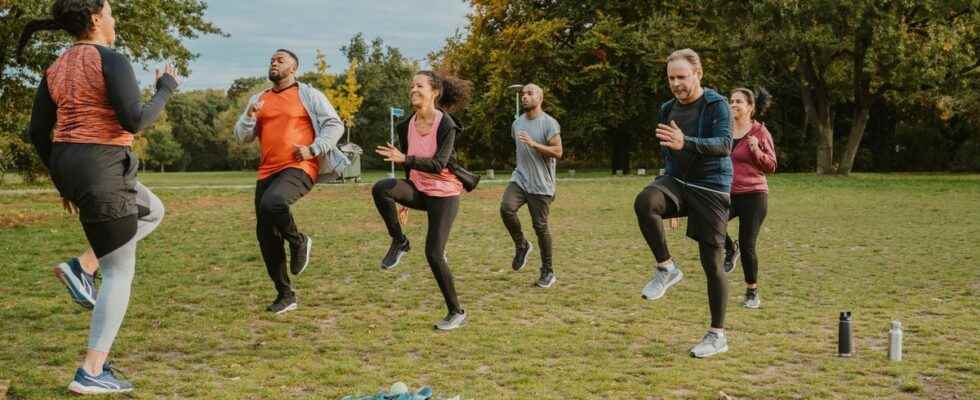Published on
Updated
Reading 3 mins.
According to an Insee study published on November 22, two thirds of French people say they practice a sport regularly. With a preference for the most accessible disciplines.
Are the French lazy? Not really, according to an INSEE study published on Tuesday 22 November. According to this, drawn up in 2020, just before the health crisis, two thirds of French people aged 15 or over (i.e. 65%) can even be qualified as sportsmen, because they had practiced at least 52 sessions of physical and sports activities. during the year. And more than half (54%) even said they had frequent physical or sporting activity, twice a week or more. And you?
Autonomous sports at the forefront
In the first position of physical activities, are gymnastics, dance or fitness (cardio training, bodybuilding or yoga) for 34% of French people who practice a sport. Then come walking, running or athletics.
According to the study, the common point of these activities lies in their accessibility: they do not require too specific or expensive equipment and can be practiced outside any structure. In addition, social networks have made it possible to start an independent activity without necessarily going through clubs, which are more restrictive in terms of schedules and rules.
Further down the ranking are racket or target sports, aquatic and nautical activities and team sports. Football for example, even if it represents the first sports federation in number of licensees, is only regularly practiced by 6% of men, often college students, and only 1% of women.
Women exercise less regularly
INSEE also noted that the practice and regularity of physical activity differed by gender: it was more common among men (71%) than among women (60%). Twice as many men as women take part in sports competitions or events (21% versus 10%) and 25% of women versus 15% of men report no activity in the last twelve months, excluding walking, swimming or relaxation .
The study points to the presence of young children at home, which could in particular explain this decrease, which is not observed among men. The time devoted to individual activities suffers.
Different motivations related to social status and culture
Health, well-being, pleasure or contact with nature top the list of French people’s motivations for taking up a sport. However, these are diverse and draw four different profiles:
- Athletes for pleasure are older on average (36%);
- People who exercise primarily for their health do so alone (29%);
- The hard core of athletes, practicing intensely is affiliated with a club (20%);
- More occasional athletes, more often attracted by a taste for adventure and risk, are more from underprivileged social categories (15%).
There is also a social differentiation of sports practices. According to INSEE, the proportion of people belonging to the privileged and most educated social categories is higher among those who play sports at least once a week (20%).
In addition, family transmission also plays an important role: more assiduous practitioners more often had one or more sports parents during their childhood or adolescence. Finally, health goes hand in hand with regular physical activity: the proportion of practitioners declaring themselves to be in good or very good health increases with the regularity of the practice. Thus, 43% of non-athletes found themselves in good general health, compared to 61% of holiday or occasional athletes and 76% of frequent athletes.
